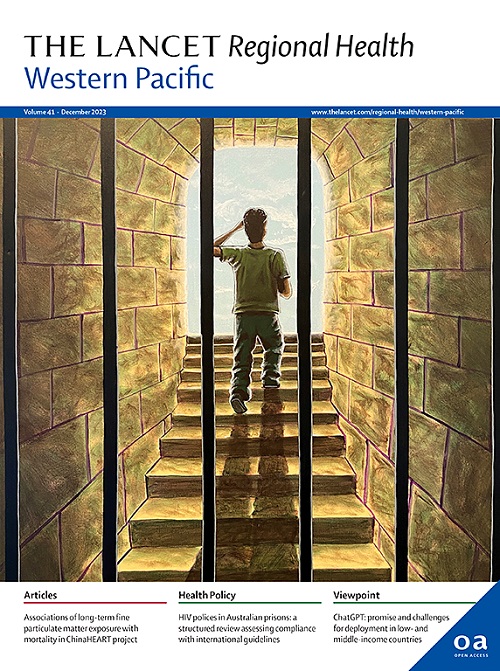Choice preferences for AI-based medication counselling in patients with chronic obstructive pulmonary disease: a discrete choice experiment
IF 7.6
1区 医学
Q1 HEALTH CARE SCIENCES & SERVICES
引用次数: 0
Abstract
Background
Patients with chronic obstructive pulmonary disease (COPD) require long-term and accuracy medication guidance, making it a promising tool for the management of COPD. Nevertheless, patient preferences for AI-based medication counselling in COPD management remain unclear.
Methods
Data from 325 patients were analyzed. We identified 6 attributes of AI-based medication counselling and utilized an orthogonal design to generate a selection set for a discrete choice experiment (DCE). Questionnaires were collected from patients with COPD in Henan Province, comprising a general information questionnaire, DCE questionnaire, five-level EuroQol five-dimensional questionnaire (EQ-5D-5L), medication literacy scale, and e-health scale. We employed a conditional logit regression model to estimate patient-reported preferences for each attribute and calculated their willingness to pay. Additionally, we determined that the 3-class model has the best data fit superiority by calculating the Akaike information criterion (AIC), and performed latent class analysis (LCA) to analyze the heterogeneity of people's preferences for AI-based medication counselling. Based on the results of LCA, we further used multinomial logistic regression analysis to explore the factors influencing patients' preferences for AI-based medication counselling.
Findings
The conditional logit regression model reveals that patients prioritize the attributes of AI-based medication counseling in the following order of importance: accuracy, comprehensibility, consultation channels, presentation format, manual review, and cost. The calculation of WTP revealed that participants are willing to pay an additional 20.81 RMB for a boost in result accuracy from 60% to 100% and 14.33 RMB for an increase from 80% to 100%. Likewise, enhancing comprehensibility to fully understandable from incomprehensible or partially comprehensible garners an extra 13.85 RMB or 4.39 RMB, respectively. Latent class analysis categorized patients into three groups: Class1 (21.2%) favors human-reviewed consultations via websites and audio/dialogue; Class2 (59.7%) prefers app-based consultations without human review and presented with images; and Class3 (19.1%) is less concerned with consultation details but prioritizes unreviewed audio or dialogue formats. Multinomial logistic regression analysis showed that, among Class1 and Class2, gender (p=0.034) age (p=0.017) and e-health literacy scores (p=0.001) significantly influence classification, with females and older, more digitally literate individuals leaning towards Class1. Comparatively, Class1 versus Class3 analysis indicated that higher income (p=0.027) and the presence of other chronic diseases (p=0.005) significantly predict Class1 membership, suggesting that wealthier individuals or those with multiple health conditions are more likely to prefer Class1.
Interpretation
Currently, a significant majority of patients are receptive to AI-based medication counselling. Overall, people prefer AI-based medication counseling that is highly accurate and understandable, accessed through websites, presented in audio or dialogue form, manually reviewed, and low in cost. To effectively guide COPD patients with AI-based medication counseling, it's crucial to enhance the accuracy and clarity of consultation results. However, the study could not include all attributes related to AI-based medication counselling.
Funding
None.
求助全文
约1分钟内获得全文
求助全文
来源期刊

The Lancet Regional Health: Western Pacific
Medicine-Pediatrics, Perinatology and Child Health
CiteScore
8.80
自引率
2.80%
发文量
305
审稿时长
11 weeks
期刊介绍:
The Lancet Regional Health – Western Pacific, a gold open access journal, is an integral part of The Lancet's global initiative advocating for healthcare quality and access worldwide. It aims to advance clinical practice and health policy in the Western Pacific region, contributing to enhanced health outcomes. The journal publishes high-quality original research shedding light on clinical practice and health policy in the region. It also includes reviews, commentaries, and opinion pieces covering diverse regional health topics, such as infectious diseases, non-communicable diseases, child and adolescent health, maternal and reproductive health, aging health, mental health, the health workforce and systems, and health policy.
 求助内容:
求助内容: 应助结果提醒方式:
应助结果提醒方式:


